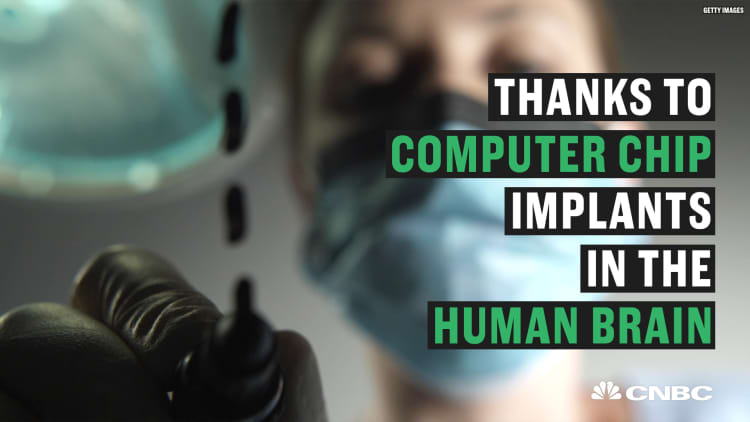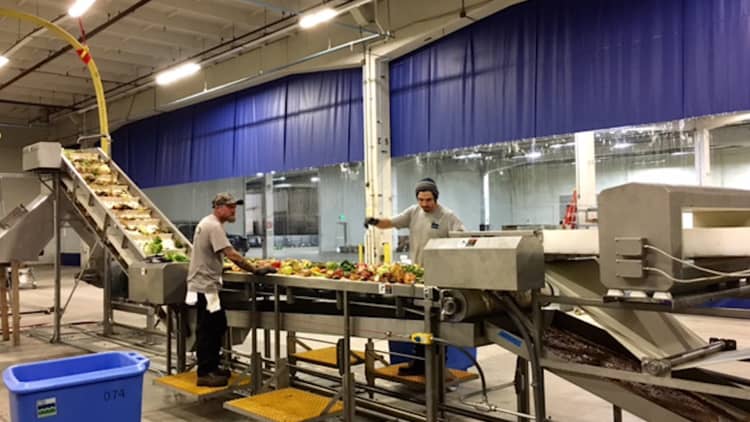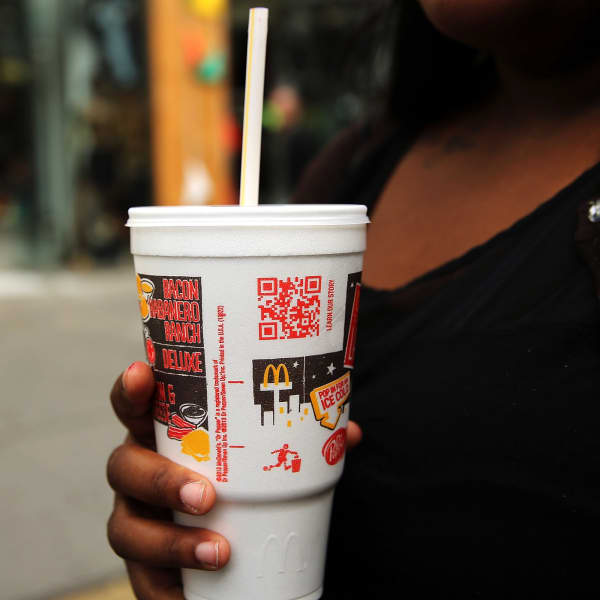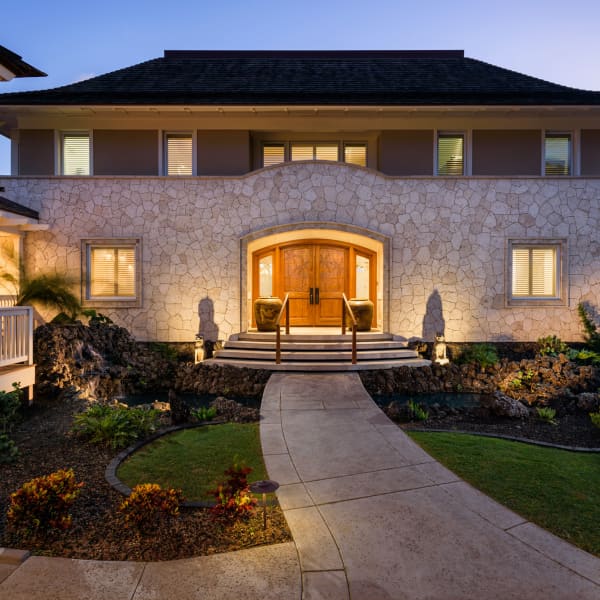Warren Buffett's grandson, the former Secretary of the U.S. Department of Agriculture and the Prince of Monaco all have a shared interest in KDC Ag, a small but growing start-up in New Jersey that turns food waste into fertilizer.
They agree that food waste is a massive and expensive problem. The U.S. alone spends $218 billion a year growing, processing, transporting and throwing away 62 million tons of food that either ends up in a landfill or unharvested on farms, according to according to ReFED, an organization that raises awareness of the problem in the U.S.
Meanwhile, 15.8 million U.S. households (12.7 percent) were food insecure at some point during 2015, according to the most recent data available from USDA Economic Research Service.
And, at the same time, the farming industry is depleting the soil of necessary nutrients. Two years ago, the United Nations Food and Agriculture Organisation estimated the topsoil of the planet could only support about 60 more years of harvests.
KDC Ag's efforts to address these three problems have drawn attention and the support of wealthy investors around the world.
Turning garbage into an agriculture revolution
KDC Ag, one arm of the family investment office Kamine Development Corporation, is commercializing a process that turns food waste into a nutrient-rich fertilizer that helps lead to more, and higher quality, produce.
The company picks up leftover meat, bones, fruits, vegetables and baked goods from grocery stores, donates what can be used to shelters and food banks and then transports the rest to a processing facility to be ground up and mixed with enzymes in a process developed by partner organization California Safe Soil.
In three hours, the food waste becomes a chemical-free fertilizer. A day after collection, the scraps that could have become garbage are instead spread on fields to help crops grow.
Currently, KDG Ag haS one facility for processing food waste in Sacramento, Calif., that digests 15 tons of food waste every three hours. And KDC Ag is building a second site in southern New Jersey that will digest anywhere from 60 to 100 tons of food waste every three hours.
An A-list board
The start-up has won the endorsements of some high-profile individuals, including former USDA Secretary Ann Veneman. A new member of the KDG Ag board, she is impressed with the sustainability of the business model.
"It is estimated that around one-third of the food produced in the world is wasted," Veneman tells CNBC. "KDC Ag and California Safe Soil has a revolutionary new technology to convert food waste into a nutrient rich sustainable fertilizer and animal feed for farmers.
"This technology is significantly benefiting the food chain, the environment and production agriculture."
Howard W. Buffett, Warren Buffett's grandson, who joined the KDC Ag board nine months ago, is encouraged by the innovation. With his father, Howard wrote a book, "40 Chances: Finding Hope in a Hungry World," about how to improve farming to alleviate global hunger.
"Food waste is a pervasive and troubling challenge — globally, but especially here in the U.S. I joined the KDC Ag advisory board because of the group's commitment to advancing new technology toward solving this challenge," Buffett says.
"KDC Ag's solutions have the potential to transform how our food, waste, and soil systems work together, which is both exciting and critical for a more sustainable and productive future."
The technology also caught the attention of the His Serene Highness Prince Albert II of Monaco. KDC Ag beat out 29 other start-ups at the country's tenth annual clean tech conference to win the category of environmental technology development.
A start-up that's focused on saving the world and on making money
Even as KDC Ag works to solve an environmental crisis, it's generating revenue, though the family business won't divulge details.
"In order to have the greatest impact in the world, we also need to have the greatest profitability," says Justin Kamine, co-founder and partner of KDC Ag.
The growth goals are ambitious. KDC Ag aims to eliminate food waste in the U.S. in the next five years. To do so, it will have to build 50 processing facilities. Long term, KDC Ag hopes to expand internationally.
The growth of KDC Ag may help the environment and even improve the quality of available food, but it doesn't depend on charity. Up and down the supply chain, people make or save money. Grocery stores that supply food waste pay KDC Ag less to haul away the scraps than they would have to pay others to remove it. Farmers who use the fertilizer, called Harvest to Harvest ("H2H"), should see more bounty and larger profits.
And that's the sell. "Look at the economics. And then, oh, on the back burner, this is extremely sustainable," says Kamine.
See also:
Why this Harvard grad has spent a decade making maxi pads out of banana fibers
Ahead of Elon Musk, this self-made millionaire already launched a company to merge your brain with computers
The counterintuitive advice best-selling author Cheryl Strayed gave Tim Ferriss about achieving greatness

This story is part of NBCU's 10th Annual Green is Universal Earth Week where we're inviting our viewers and readers to "Green Up" by sharing steps you can take to help the planet. Follow Facebook, Twitter and Instagram for more. #GreenUp






